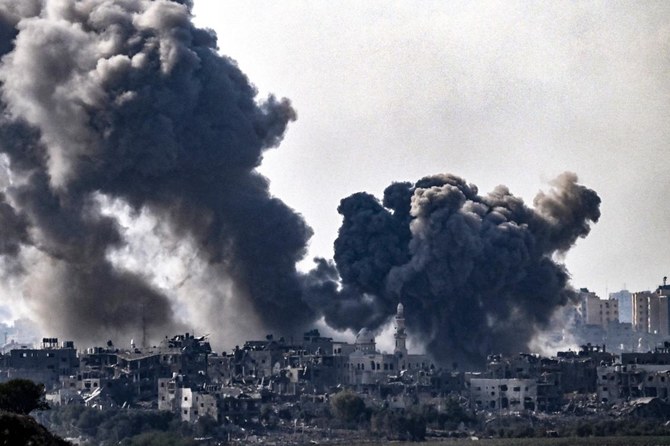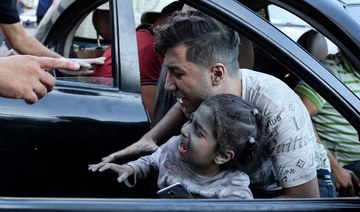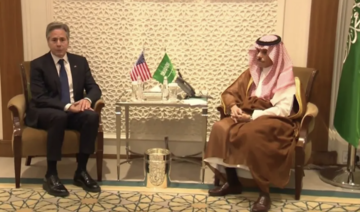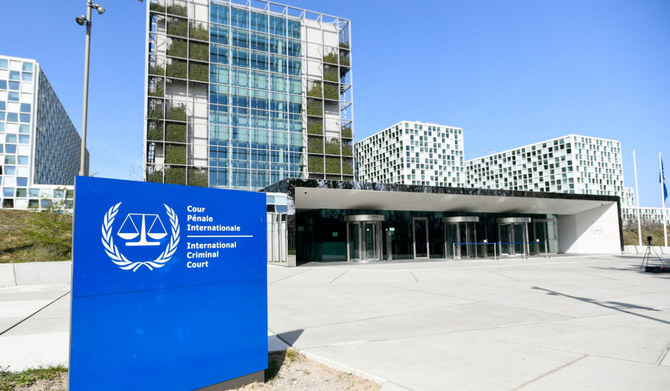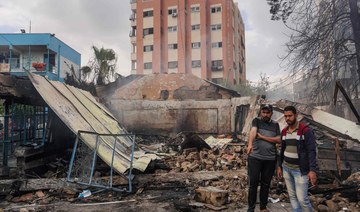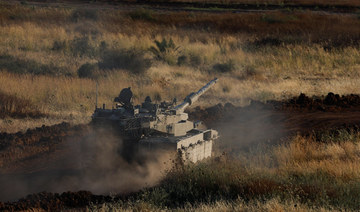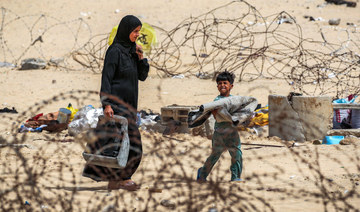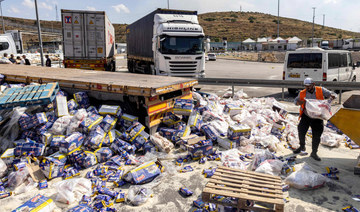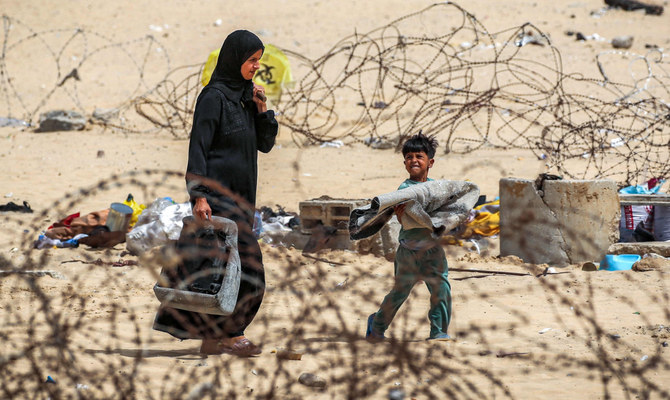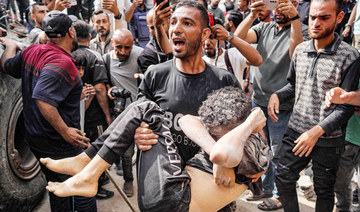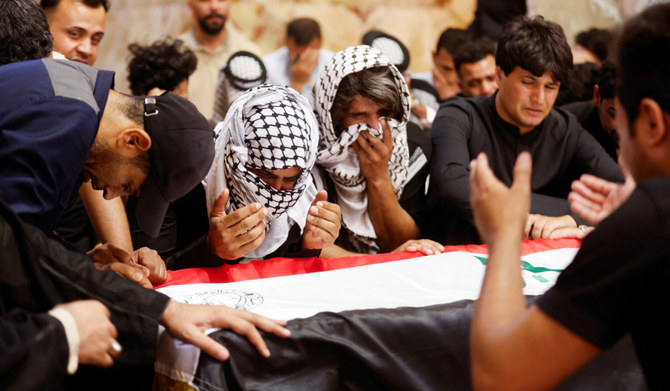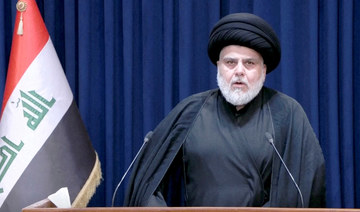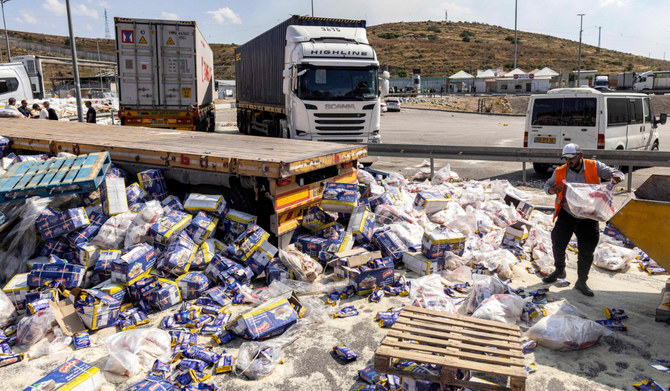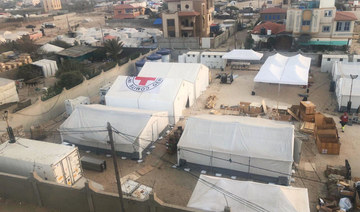GAZA: As an unrelenting Israeli bombardment intensified on Saturday, bakeries in Gaza were running out of bread, drinking water was in short supply and power outages left families without charged phones to find out if fleeing relatives were safe.
“There is an electricity crisis, food crisis, water crisis, a crisis of everything,” Eyad Abu Mutlaq, 45, said in Khan Younis in south Gaza, a region filling up with thousands of people fleeing the north for fear of an Israeli invasion.
“It is only God who can resolve it,” he said after touring four bakeries to find long queues or no supplies.
The flood of people arriving in south Gaza after Israel told them on Friday to leave an area in the north has stretched resources that were already strained to breaking point.
The United Nations has urged Israel to “avert a humanitarian catastrophe” in Gaza, a slither of land with 2.3 million people wedged between Israel, Egypt and the Mediterranean Sea.
In its response to the devastating Oct. 7 assault from Gaza by Palestinian militant group Hamas, Israel has imposed a “total blockade” halting food supplies and cutting electricity to Gaza. A week after that began, shops are running out of many items.
“I was looking for basic food, eggs, rice, canned food, even milk for the children and I couldn’t find them,” said Khan Younis resident, giving only her nickname of Um Salem. “This is how Israel is fighting us, through starvation of our children. They either kill children by bombs or soon by starvation.”
Israel said it had told people to leave the north for their safety and to ensure they were not caught up in the conflict. It said it would guarantee the safety of Palestinians fleeing the area on two main roads until 4 p.m. (1300 GMT) on Friday.
Those who have fled say many roads and streets are often difficult to use, and some impassable, because of damage.
APPEAL TO END THE ‘SIEGE’
Gaza authorities said 70 people were killed and 200 were wounded when Israel struck cars and trucks carrying people fleeing the north. Reuters could not independently verify this.
The Hamas assault last week killed more than 1,300 Israelis. The fighters also took scores of hostages in the worst breach of Israel’s defenses since its creation in 1948.
The death toll from Israel’s response was more than 2,200 people by Saturday.
Without the option of crossing the border into Egypt, more of Gaza’s population has been cramming into the south seeking shelter, as Israel builds up troops and tanks on border. Israel has already launched raids.
“We need to truck fuel into Gaza now. Fuel is the only way for people to have safe drinking water. If not, people will start dying of severe dehydration, among them young children, the elderly and women,” said Philippe Lazzarini, the commissioner-general of the UN refugee agency UNRWA,.
“Water is now the last remaining lifeline. I appeal for the siege on humanitarian assistance to be lifted now,” he said.
US President Joe Biden said on Friday he was making it a priority to address the humanitarian crisis in Gaza, working with Israel, Egypt, Jordan, other Arab states and the UN He said he was also ensuring Israel had what it needed to respond to the Oct. 7 attack, including bringing any US hostages home.
The Gaza authorities have reported 10,000 people injured so far in the bombardment. Hospitals are struggling to cope. Gaza Health Ministry spokesperson Ashraf Al-Qidra said hospitals were running low of medical supplies and fuel to keep going.
More than 1,695 buildings and high-rise towers have been destroyed in the Israeli airstrikes, in addition to 7,000 housing units, the Hamas government media office said.
With power cuts and no fuel to operate generators, Adel Shaheen has been charging people’s phones with his solar panels during daylight hours.
“We don’t see the electricity anymore and if we want to charge a mobile we have to wait for the sun, otherwise we have no electricity at all,” he said. “People want to charge (mobile phones) so they can make calls to check on their families.”
But he said most Gazans were now “cut off from the world.”




